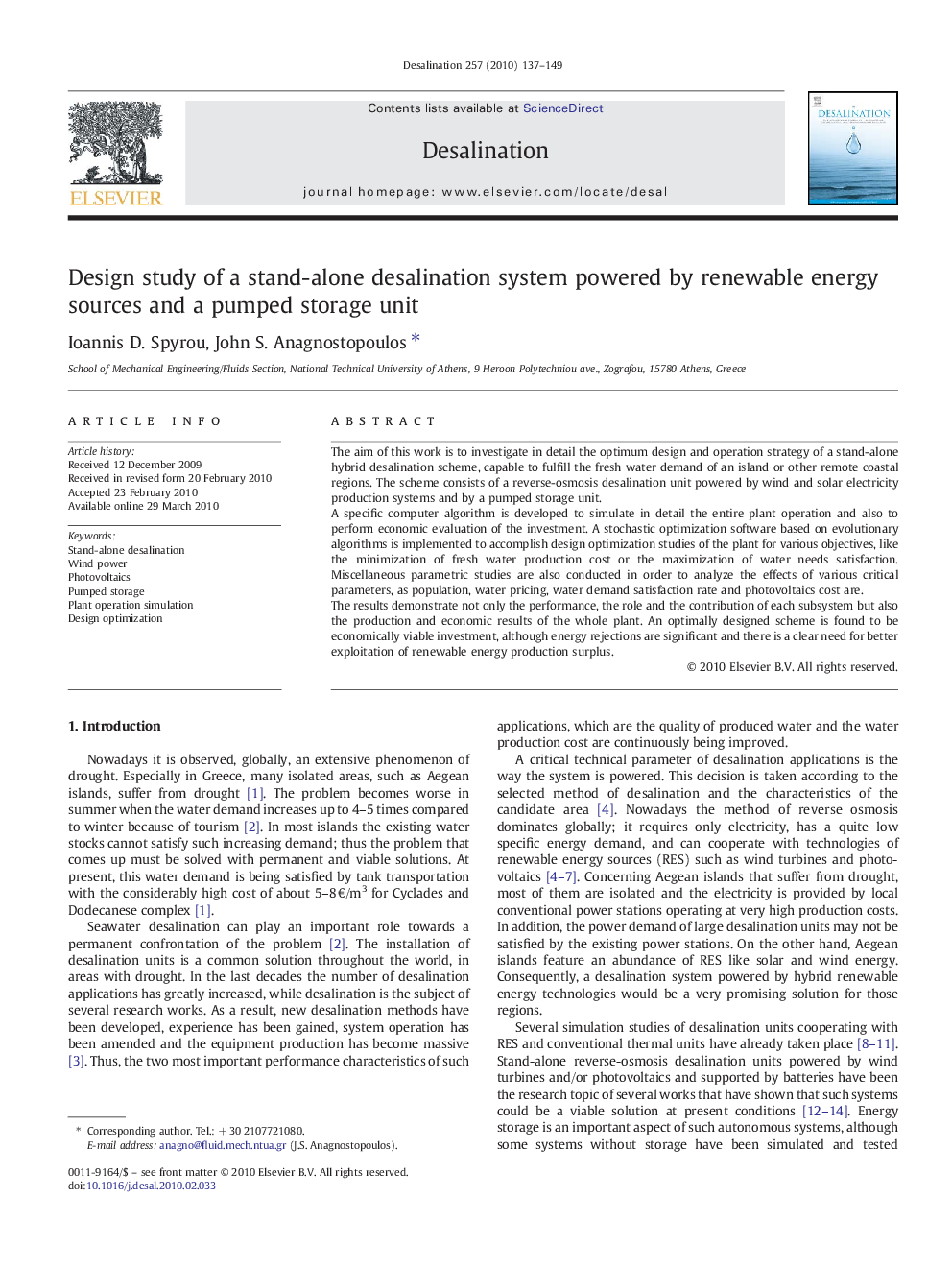| Article ID | Journal | Published Year | Pages | File Type |
|---|---|---|---|---|
| 625734 | Desalination | 2010 | 13 Pages |
The aim of this work is to investigate in detail the optimum design and operation strategy of a stand-alone hybrid desalination scheme, capable to fulfill the fresh water demand of an island or other remote coastal regions. The scheme consists of a reverse-osmosis desalination unit powered by wind and solar electricity production systems and by a pumped storage unit.A specific computer algorithm is developed to simulate in detail the entire plant operation and also to perform economic evaluation of the investment. A stochastic optimization software based on evolutionary algorithms is implemented to accomplish design optimization studies of the plant for various objectives, like the minimization of fresh water production cost or the maximization of water needs satisfaction. Miscellaneous parametric studies are also conducted in order to analyze the effects of various critical parameters, as population, water pricing, water demand satisfaction rate and photovoltaics cost are.The results demonstrate not only the performance, the role and the contribution of each subsystem but also the production and economic results of the whole plant. An optimally designed scheme is found to be economically viable investment, although energy rejections are significant and there is a clear need for better exploitation of renewable energy production surplus.
